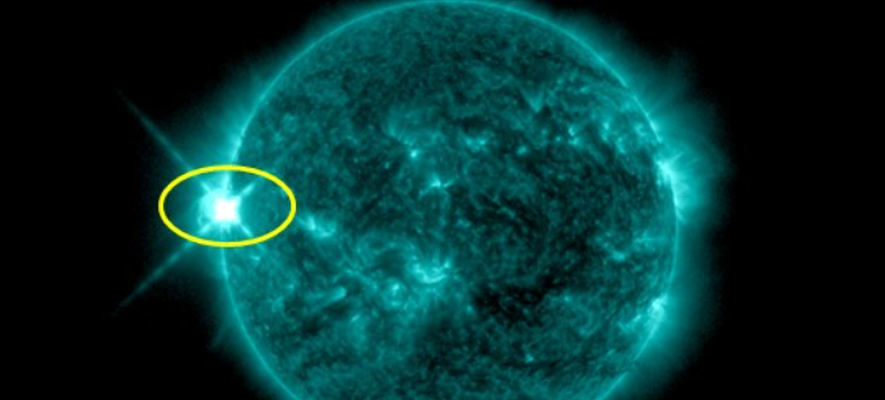Just before the end of 2023, the Sun came to remind us of its immense power.
Our star triggered a solar flare ce Sunday December 31, 2023.
The explosion, which occurred at 4:55 p.m. EST (10:55 p.m. in France), was recorded as class and is considered the solar flare the most powerful since September 10, 2017according to’American Oceanic and Atmospheric Observing Agency. As a reminder, solar flares are classified into three categories: C being the weakest, M those of intermediate average intensity and X the strongest.
A X5.0 flare (R3 strong radio blackout) peaked at 4:55 pm EST today. It was the strongest flare observed since Sep. 2017 and came from the same region as the last major flare on Dec. 14. pic.twitter.com/Fm2iLr1MJK
— NOAA Space Weather (@NWSSWPC) January 1, 2024
Solar tsunami
This eruption, which also caused a solar tsunamicomes from sunspot AR3536, the same region as the last major eruption on December 14.
Powerful flares are often accompanied by coronal mass ejections (CMEs), which throw enormous clouds of solar plasma through space at speeds of millions of kilometers per hour. And it seems that a CME is indeed associated with this eruption, probably “a component directed towards the Earth”writing SpaceWeather.com.
Geomagnetic storms expected this January 2
The CMEs that hit our planet can cause geomagnetic storms, likely to disrupt electricity networks and other infrastructure. Such storms class G2 should Thus January 2according to the specialized site.
Earth’s atmosphere prevents harmful radiation from solar flares from reaching the ground. But this radiation can still affect us, for example by disrupting the signals sent by GPS and communications satellites and causing radio outages.
In fact, the eruption “caused a profound shortwave radio blackout over the Pacific Ocean. Sailors and amateur radio operators may have noticed a loss of signal at all frequencies below 30 MHz for more than 60 minutes afterward the peak of the eruption“, we can read on SpaceWeather.com.

